重型载货汽车悬架设计(含CAD零件装配图,CATIA三维图)
无需注册登录,支付后按照提示操作即可获取该资料.
重型载货汽车悬架设计(含CAD零件装配图,CATIA三维图)(任务书,开题报告,文献摘要,外文翻译,论文说明书13000字,CAD图6张,CATIA三维图)
摘 要
悬架系统是汽车上的重要部件之一,决定和影响着车辆的行驶平顺性、操纵稳定性和乘坐舒适性。本文针对重型载货汽车悬架系统进行选型与设计,着重介绍了悬架系统设计的步骤与流程。首先是熟悉悬架系统方面的知识,并根据参考车型进行悬架系统的结构选型,然后运用车辆悬架设计方面的知识分别对前、后钢板弹簧和减振器的主要结构尺寸进行设计计算与强度校核,接着通过CATIA绘制前、后板簧悬架系统三维模型并导出零件图、装配图,并运用AutoCAD对导出的零件图、装配图进行进一步处理,最后运用MATLAB/Simulink建立相应的振动仿真模型,探讨板簧悬架系统刚度和减振器阻尼系数的变化对汽车行驶平顺性的影响。
关键词:钢板弹簧式悬架;悬架系统刚度;减振器;阻尼系数
Abstract
The suspension system is one of the important components in the car, which determines and affects the ride comfort, handling stability and ride comfort of the vehicle. This paper focuses on the selection and design of the heavy-duty truck suspension system, and focuses on the steps and processes of the suspension system design. The first is to familiarize with the knowledge of the suspension system, and to select the structure of the suspension system according to the reference model, and then use the knowledge of vehicle suspension design to design and calculate the main structural dimensions of the front and rear leaf springs and dampers. After checking with the strength, the 3D model of the front and rear leaf spring suspension system is drawn by CATIA and the parts and assembly drawings are exported. The exported parts and assembly drawings are further processed by AutoCAD. Finally, MATLAB/Simulink is used to establish the corresponding The vibration simulation model is used to investigate the influence of the stiffness of the leaf spring suspension system and the damping coefficient of the damper on the ride comfort of the vehicle.
Key words:leaf spring suspension; suspension system stiffness;shock absorber; damping coeffici
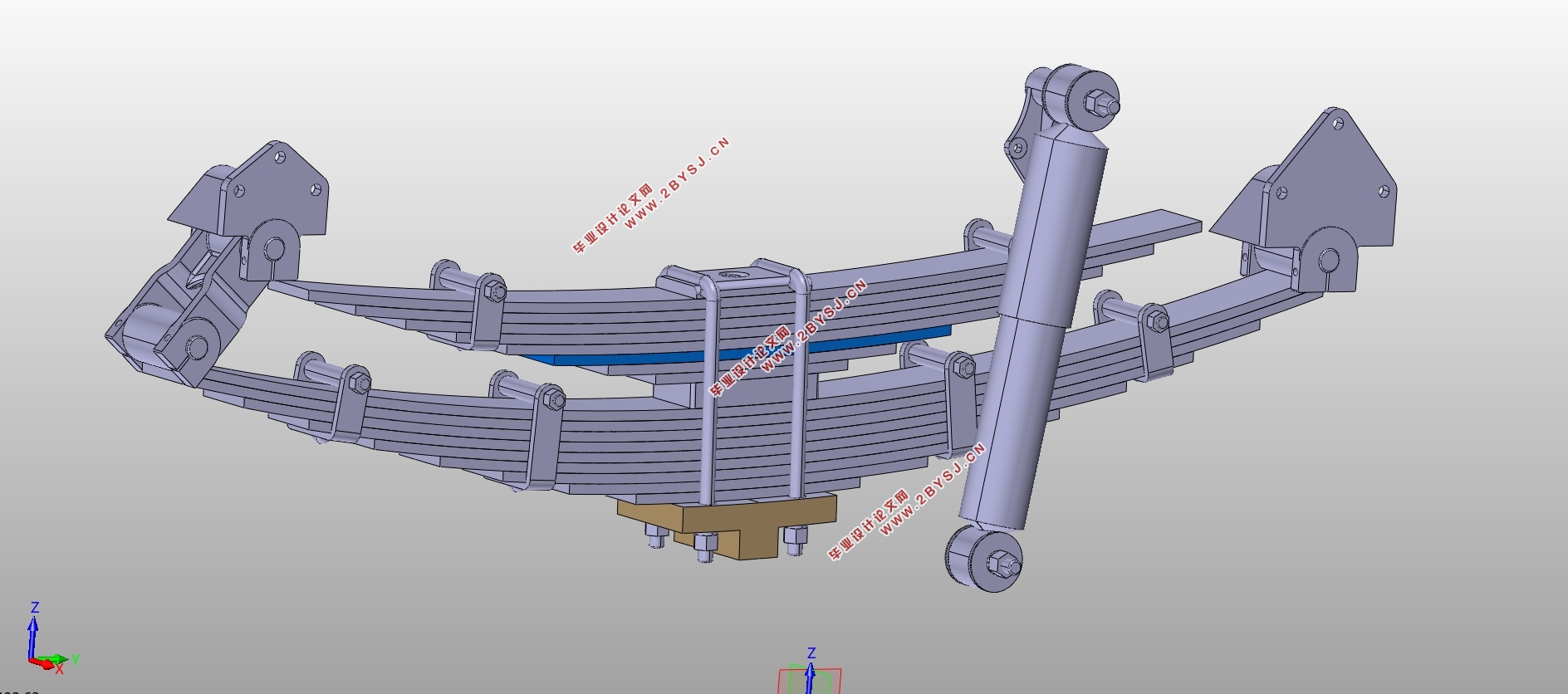
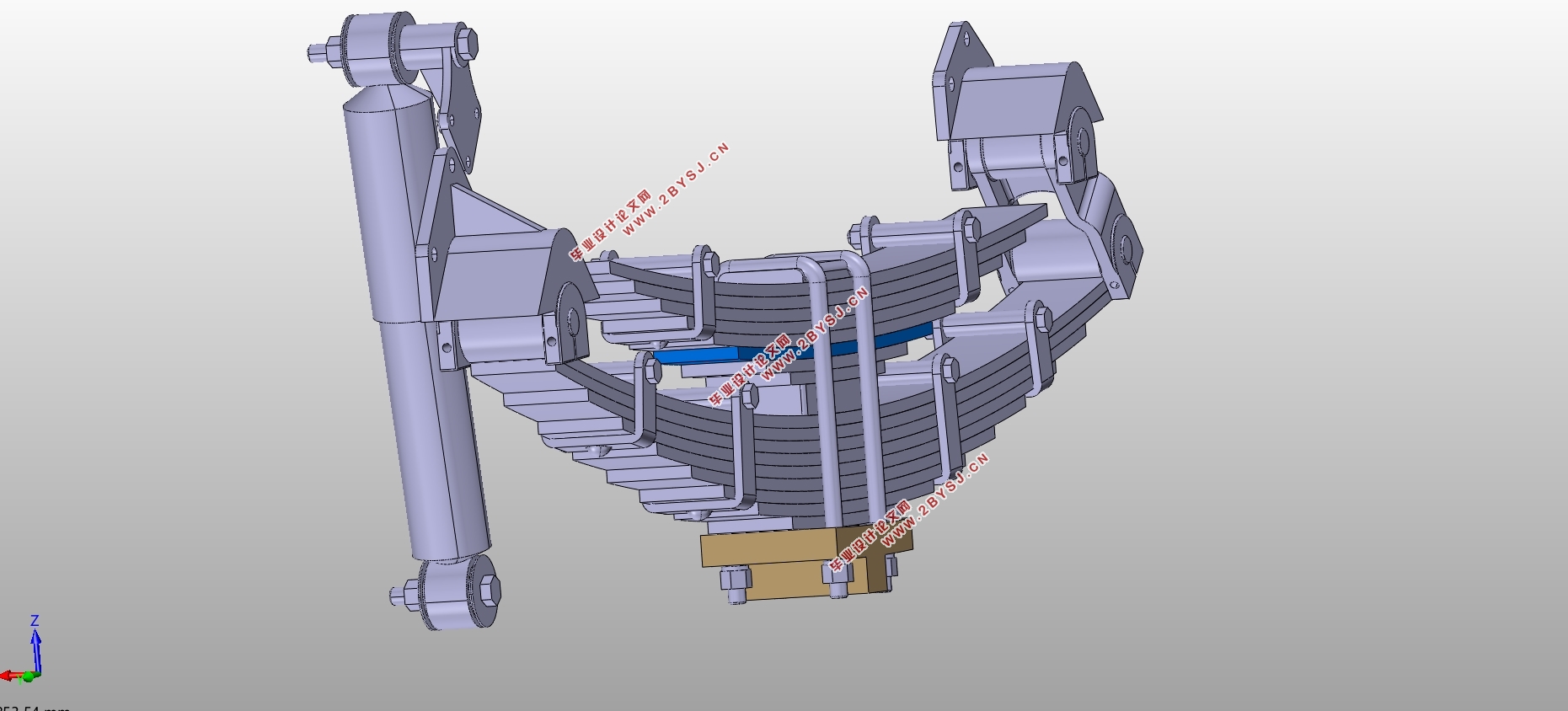
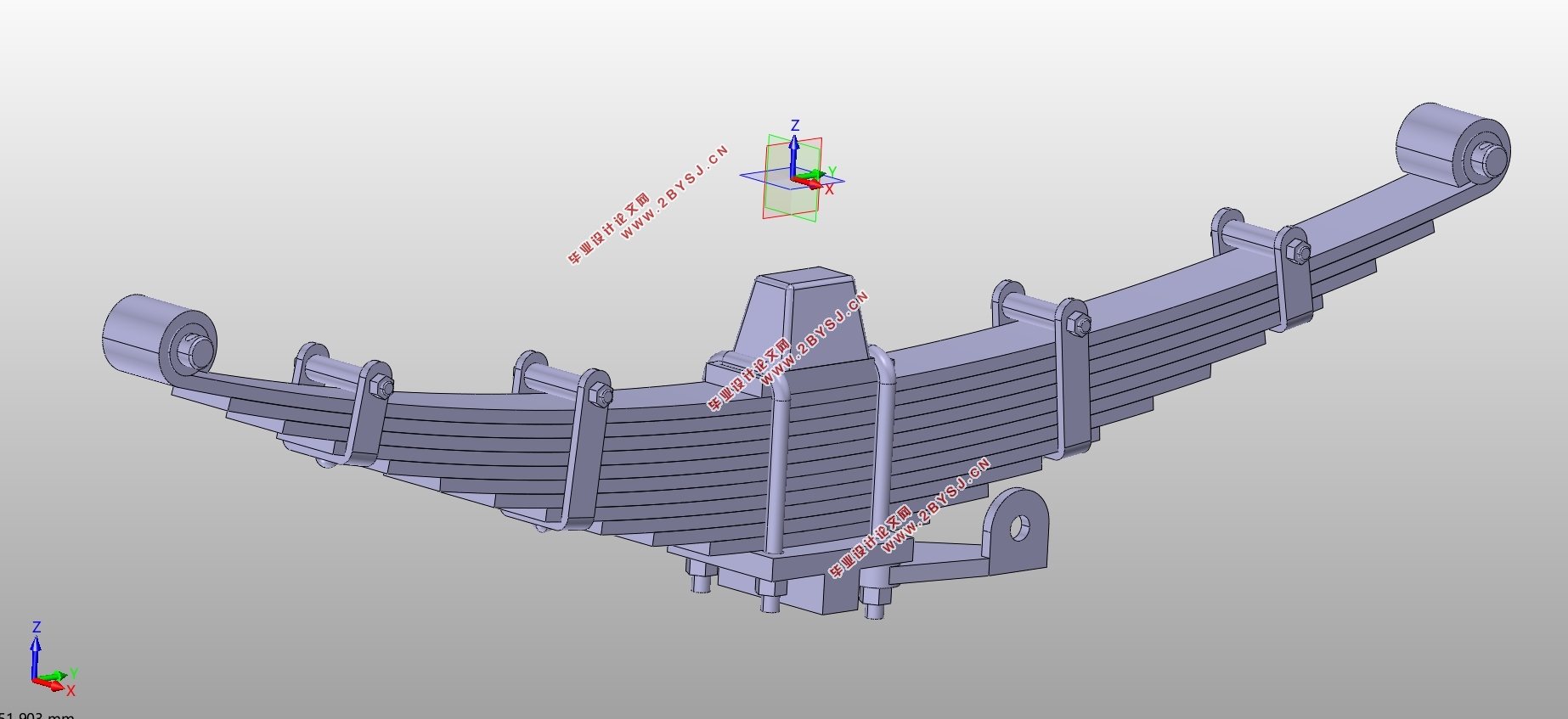
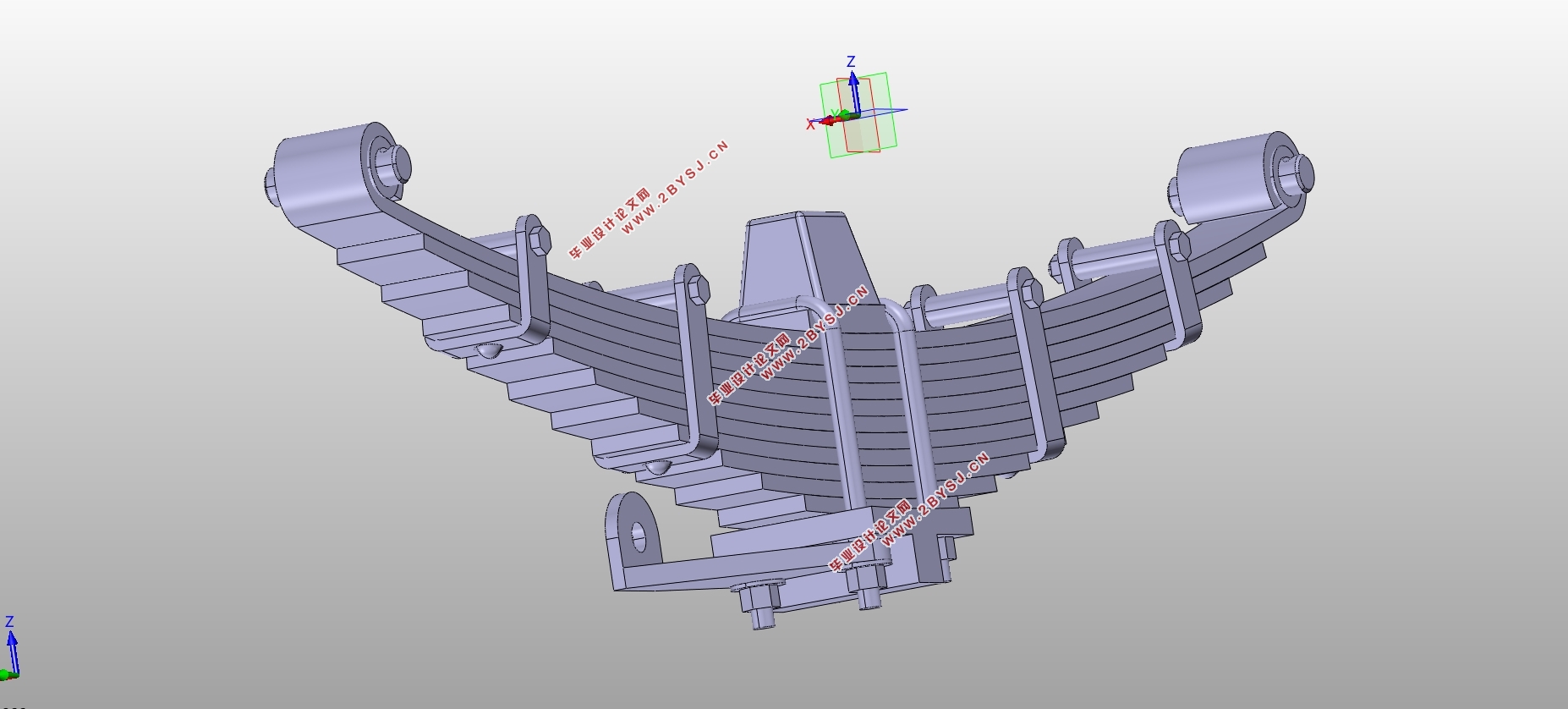
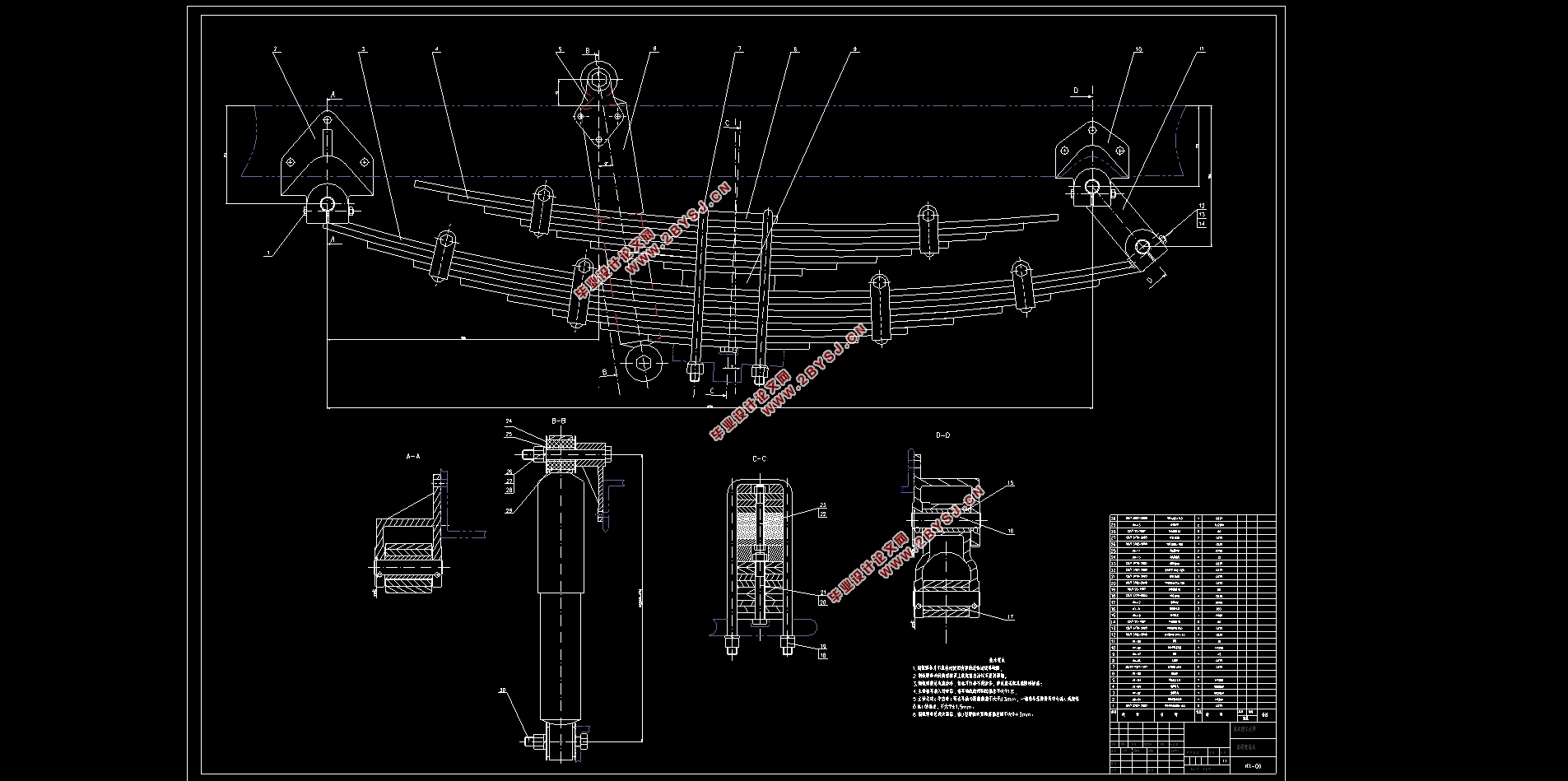
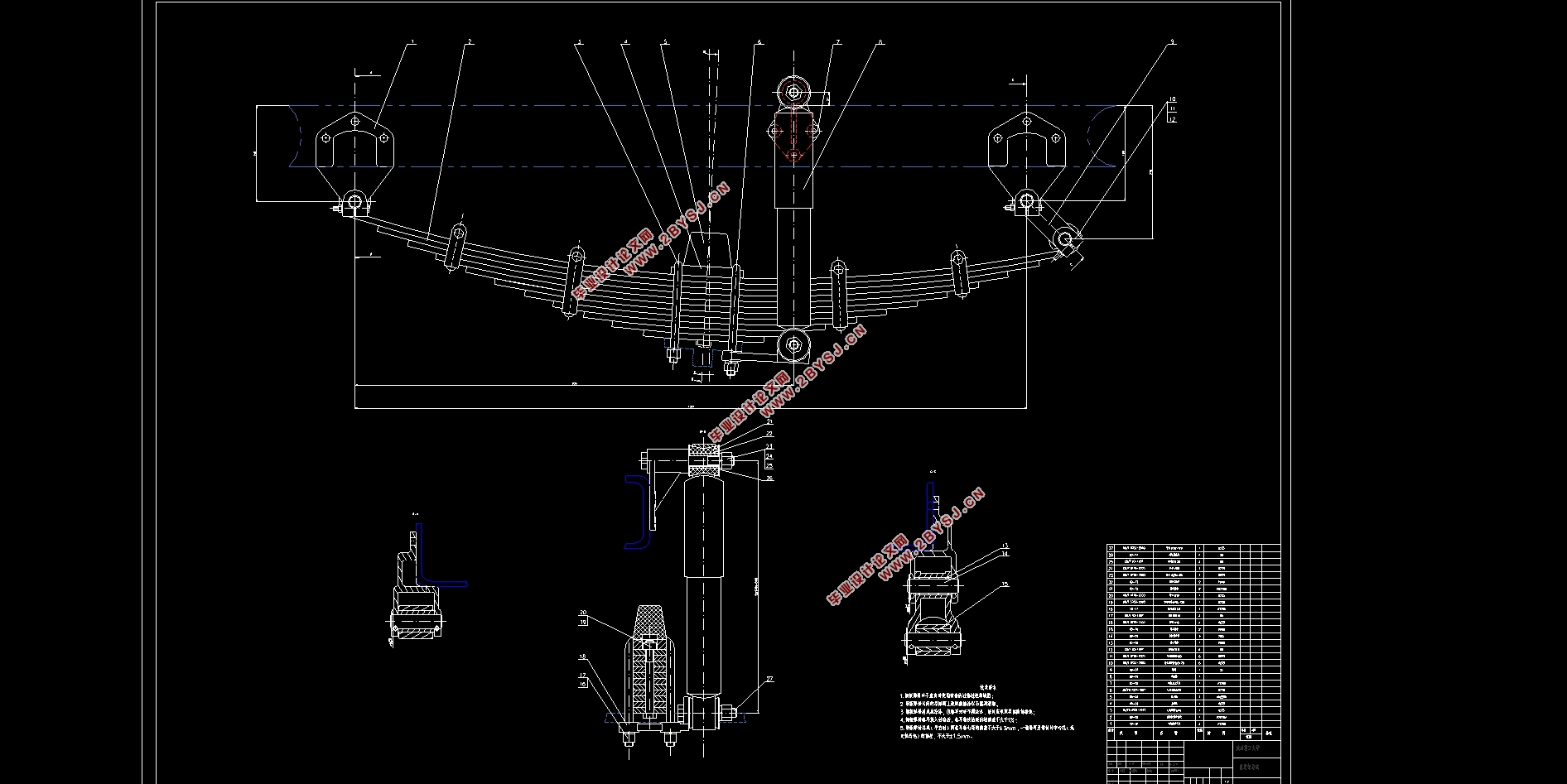
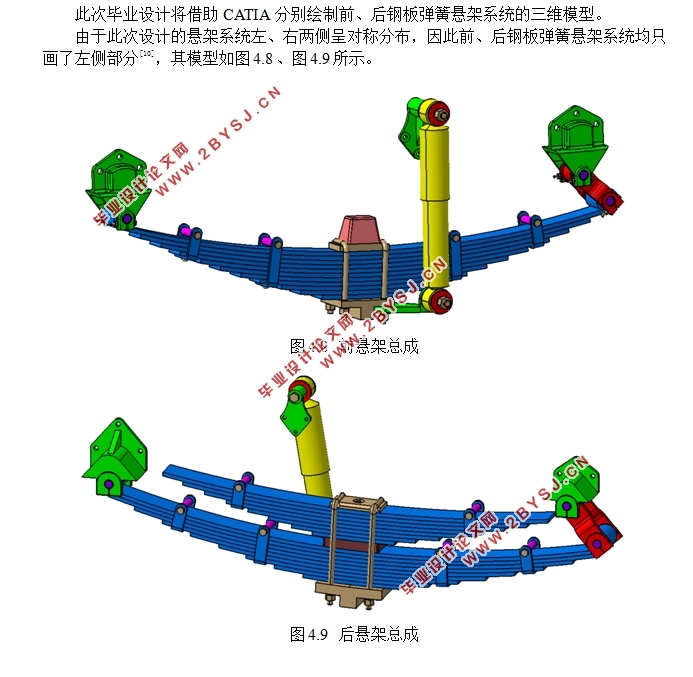
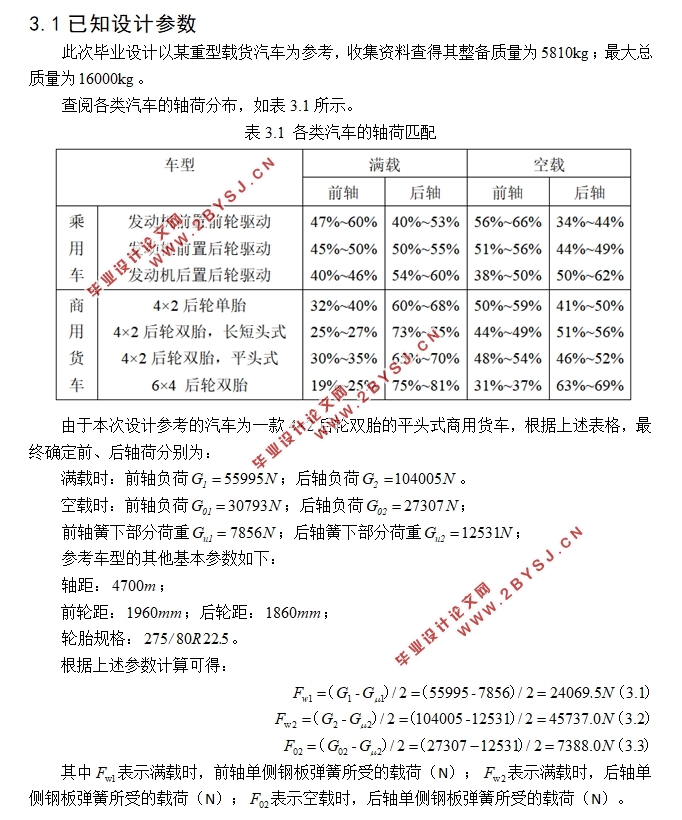


目录
第1章 绪论 1
1.1课题研究意义 1
1.2国内外研究现状 1
1.3课题研究内容 2
第2章 悬架系统结构分析与设计要求 3
2.1悬架系统的功用和组成 3
2.2悬架系统的结构形式 3
2.3悬架系统的设计要求 4
第3章 悬架系统主要参数的确定 5
3.1已知设计参数 5
3.2悬架的静挠度fc 6
3.3悬架的动挠度fd 7
3.4后悬架主、副弹簧刚度分配 7
第4章 前、后悬架系统的设计 9
4.1钢板弹簧的设计计算 9
4.1.1钢板弹簧长度L的选择 9
4.1.2钢板弹簧片数的确定 9
4.1.3满载弧高fa的选择 9
4.1.4钢板断面尺寸的确定 10
4.1.5钢板弹簧各片长度Li的确定 12
4.1.6钢板弹簧的刚度验算 15
4.1.7钢板弹簧总成在自由状态下的弧高及曲率半径计算 17
4.1.8钢板弹簧总成弧高的核算 21
4.1.9钢板弹簧强度的验算 22
4.2减振器的设计 24
4.2.2减振器阻尼系数δ的确定 24
4.2.3最大卸荷力F0的确定 25
4.2.4工作缸直径D的确定 25
4.3三维模型的建立 26
第5章 悬架系统的建模与仿真 27
5.1建立悬架振动仿真模型 27
5.1.1悬架动力简化模型 27
5.1.2建立路面干扰输入模型 28
5.1.3建立悬架Simulink仿真模型 28
5.2悬架系统的仿真分析 29
5.2.1改变悬架刚度值 29
5.2.2改变悬架阻尼值 31
第6章 结论 33
参考文献 34
致谢 35
附录 36
